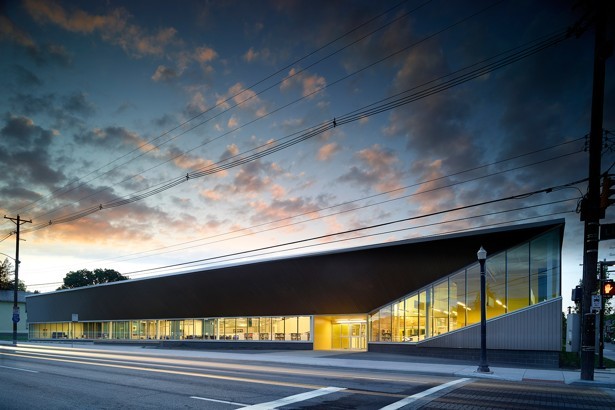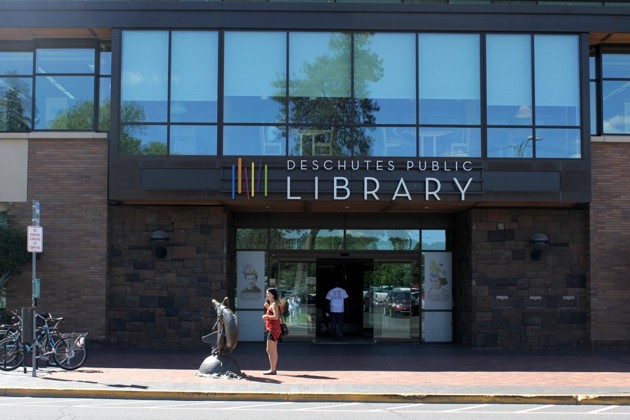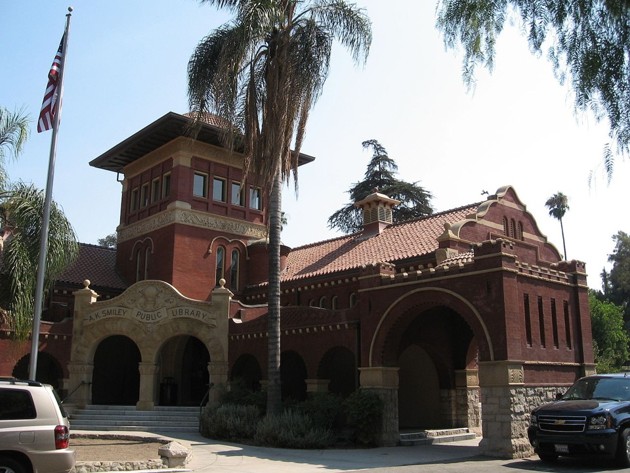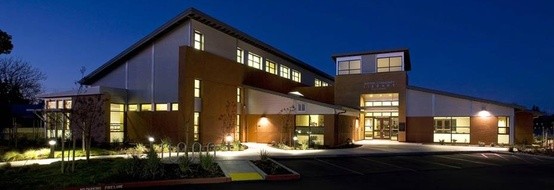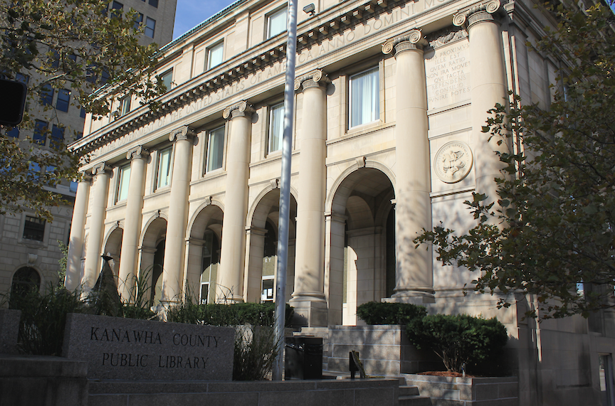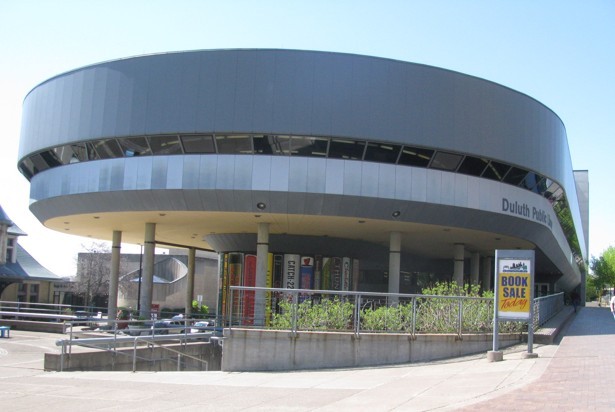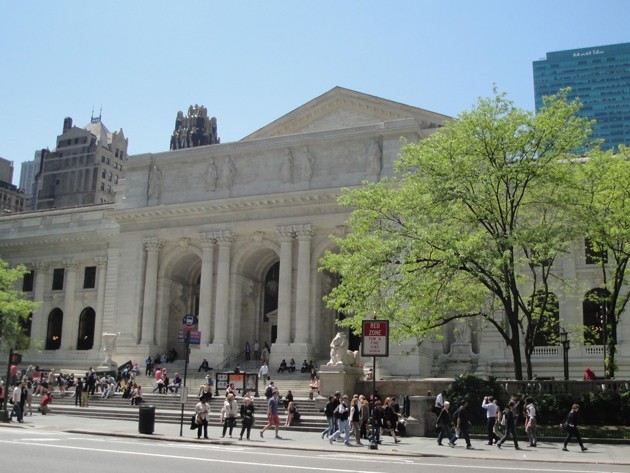Part of my "every library I can" project involves re-visiting libraries that have undergone significant renovations...and that includes Golden Valley. I last visited here in August 2012, in the "first wave," when I set out to visit all the MELSA libraries of the seven-county area around the Twin Cities.
My overall impression today was a contradictory feeling of more open space and more "nooks and crannies." This is especially true of the kids' area as opposed to the adults'. The kids area is essentially two spaces, a large "alcove," perhaps 15 or 16 feet square, with picture books and the kitchen sink and stove, table and chairs, and toy food for dramatic play. The rest of the area is large and very open with a half-dozen computers, quite a few easy chairs and couches, and a wooden world map on a table (partially completed). Something I haven't seen before is a low table with a slate top; it appeared to be natural slate, not a smooth chalkboard surface. The cool part was a set of plastic tumblers with paint brushes. I assume that the idea is to "paint" on the slate with water. What a neat idea! There is also an unusually large array of Duplo base plates, perhaps 2' x 4', mounted on the wall above a generous supply of Duplo blocks, a space-saving and creative approach that seems to be catching on at the many of the libraries I visit.
There is a large collection of Childrens fiction, plus holiday and fairy tale books shelved separately. Bins hold easy readers and "Easy" non-fiction. And as I finsihed a walk around the kids area, I spotted a standing mirror next to a wooden clothes post holding what appear to be capes of various sorts for creative play. Overall, a very nice space for kids.
When I moved from the kids' area to the adult area, I was happy to see that the kinetic sculpture I remember from 3 1/2 years ago is still present and still operational. And it still reminds me of my favorite computer game, Marble Drop, which I haven't been able to play for years; it was left behind in a series of upgrades, I fear.
Directly behind the sculpture is a browsing area with large windows, easy chairs, and ready access to the periodical collection. I think there are about two dozen computers in the adult and teen areas; they are spread about in clusters, which minimizes the feeling of focusing on computers and neglecting books--they have roughly even status, which I am glad to see.
There are two pleasant seating areas, each with windows on two sides. Furnitre in these areas is designed to allow patrons to plug in their own electronics. One wall holds a decent refernce collection, including World Book Encyclopedias from 2014 and 2015, adjacent to the music CDs. I like seeing that encyclopedias still have a place! Another wall has collections of books in Russian and Spanish.
The teen area is overseen by a large construction on the wall, not exactly a mural; it incudes a group of computer keyboards painted black. For this, I would have liked a picture, but a) I forgot my camera, and b) the place was full of people! Both the DVD and non-fiction collections are in this area, as well as the teen fiction collection. The non-fiction shelves hold both adult and children's books.
One change made by the renovation is the addition of two one-person study rooms and two small conference rooms. Fitting in the conference rooms left the fireplace in an odd location, but I talked to staff about that and learned that it couldn't be used anyway. Insurance and all, you know? It was nice to talk to the circulation staff person, who is, in a way, following in my footsteps: she's retired from a corporate job and working part-time at the library. I'm just one step ahead, since I recently retired once more after working part-time at a library for eight years.
Many of the libraries I visit these days seem to emphasize computers and media over good old books. I did not get that sense here. Looking back, I could tell you where to find the music CDs; I'm sure there are plenty of DVDs as well, but I don't recall seeing them. If this makes me an old fogey, so be it: I like books to be primary.
I didn't attempt to take pictures. Yes, I forgot my camera, but part of the forgetting was that I had just looked at the terrific series of pictures, both current and showing construction, available here:
https://www.flickr.com/photos/hennepincountylibrary/sets/72157660078924170/
The library website, which also has that flickr link, is at http://www.hclib.org/about/locations/golden-valley. You can also search for Golden Valley Library on Facebook for some interesting posts...but be sure you add "Minnesota" or "Hennepin" to your search, as Golden Valley seems to be a popular place name.
2/13/2016, car
